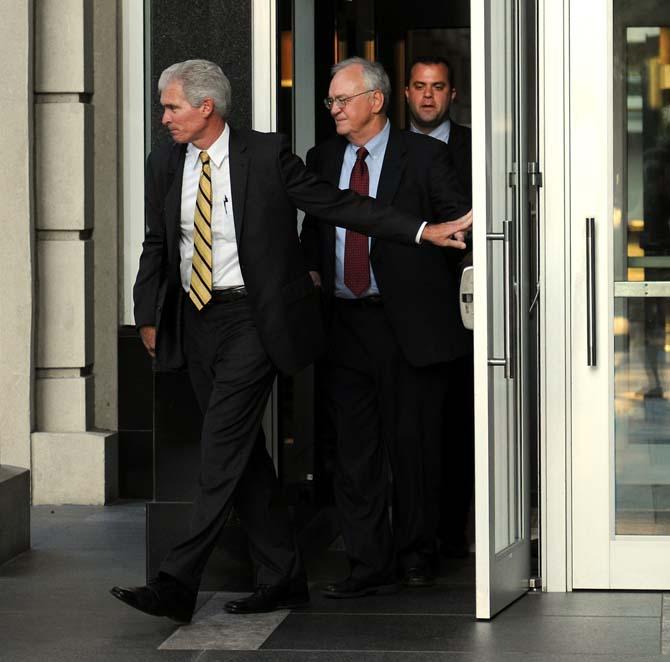As the lawsuit brought against the University by The Advocate and NOLA.com | The Times-Picayune moves to the next phase of the legal process, critics have lined up to attack the University’s methods of carrying on with the case.
The main point of criticism has been the University’s accumulation of fees relating to the lawsuit, totaling more than $140,000 between attorney fees and penalties owed to the plaintiffs and contempt of court fines owed to the court.
In a column for The Times-Picayune on Friday, mass communication professor Bob Mann criticized the Board of Supervisors for its failure to cooperate with District Judge Janice Clark’s orders asking where money to pay the fines would come from.
“You would expect that a public body that gave a flip about the public would have already assured us that no public funds will be tapped to pay the fines,” Mann wrote.
University attorney Jimmy Faircloth said the University doesn’t currently have a plan in place for paying the fines, because the fines may be overturned during the appeals process.
Faircloth said he couldn’t recall a previous case in which the University had to pay contempt of court fines or fines, to plaintiffs, which would act as a legal
precedent.
Members of the Board of Supervisors will not personally pay fines incurred in the presidential search lawsuit, Faircloth said. He said the Board of Supervisors and its chairman, Hank Danos, are named in the lawsuit because they represent the University in an administrative capacity, but they are not personally liable.
Faircloth said the contempt penalty has already been brought to the First Circuit Court of Appeals, and the public records lawsuit will be appealed as soon as Clark finalizes the documentation. The two appeals will likely be merged in the Court of Appeals, he said.
In his column, Mann also criticized the Board of Supervisors for unnecessarily stalling the process of the lawsuit.
Representatives for both the plaintiffs and defendants said they would have preferred to reach an agreement earlier than six months after Clark’s original ruling but were unwilling to give up the strength of their positions.
Blake Chatelain, a member of the Board of Supervisors and chair of the Presidential Search Committee, said the University was unwilling to turn over the documents because turning them over to the newspapers would make an appeal pointless. He said he was satisfied with the final agreement to turn the documents over to the judge, with the stipulation that they would not be made available to the
newspapers or the public.
“My understanding is that the plaintiffs were demanding the names so they could release them,” Chatelain said. “That’s why we didn’t comply. It would have taken away our ability to appeal.”
Attorney for NOLA.com | The Times-Picayune and the
Advocate Loretta Mince said she did not recall the University making any attempt to compromise over the handover of the documents. Mince said even if the University had offered to transfer the documents to the judge under seal, the plaintiffs may not
have accepted.
LSU criticized for handling of public records lawsuit
October 1, 2013
LSU’s lawyer, Jimmy Faircloth, leaves the 19th Judicial Courthouse followed by LSU lead legal counsel Shelby McKenzie on Tuesday, September 10, 2013 in downtown Baton Rouge.






